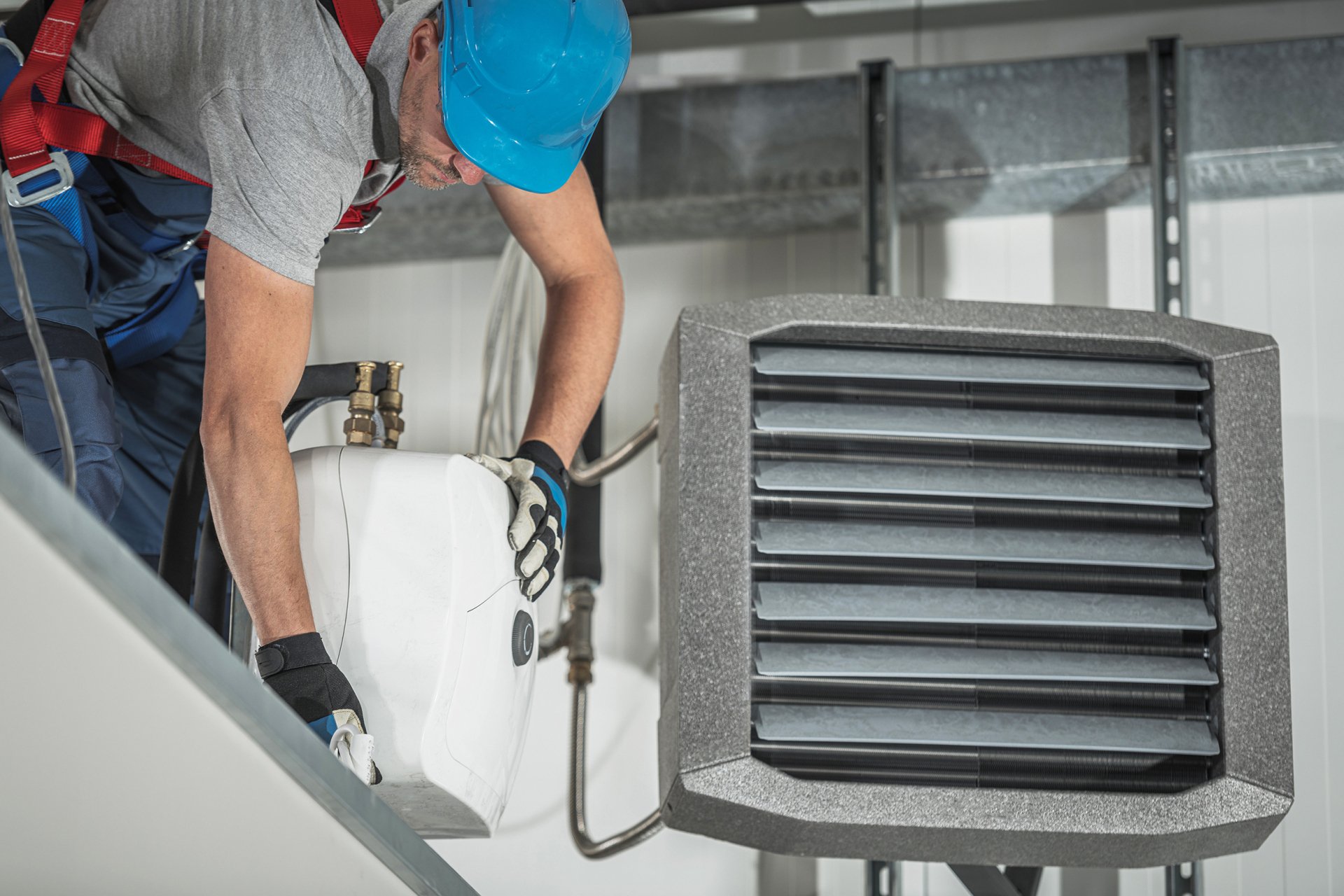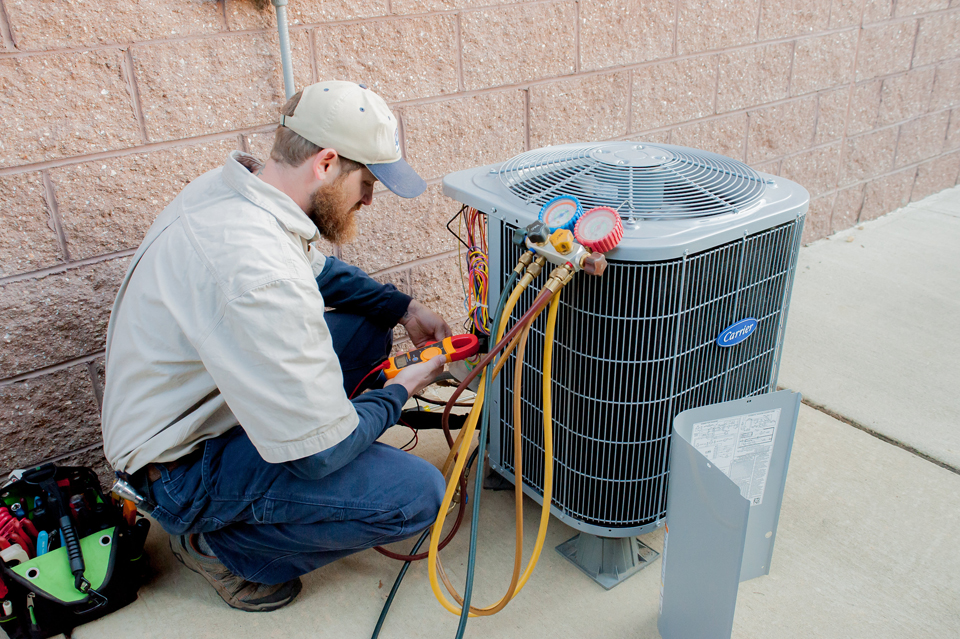heat pump service: What to Expect and Why It Matters
Picking In Between a Warmth Pump and Heating System: Key Factors To Consider for Your Cooling And Heating Needs
When evaluating heating options for cooling and heating needs, the choice in between a heatpump and a heating system can be complex. Each system offers unique benefits customized to specific environments and power effectiveness goals. Recognizing these distinctions is necessary for making an informed selection. Trick aspects such as setup costs and environmental impact additionally make complex the choice process. Which choice absolutely aligns with one's comfort and sustainability choices? The complying with areas will discover these considerations in information.
Understanding Heat Pumps: Just How They Work and Their Advantages
While numerous property owners consider different heating options, understanding how heat pumps feature and their advantages can significantly affect their choice. Warm pumps operate by transferring warm instead than producing it. In the wintertime, they extract warmth from the outside air or ground and move it inside, while in the summer season, they reverse this procedure, cooling down the home by removing warm outside. This dual functionality makes them functional for year-round environment control.One of the key advantages of heat pumps is their energy efficiency. They make use of considerably less power contrasted to conventional furnace, possibly leading to lower utility costs (heat pump installation ooltewah tn). Furthermore, warmth pumps have a smaller sized carbon footprint, making them an eco-friendly option. They additionally call for much less upkeep than conventional systems, adding to long-lasting cost savings. Overall, understanding the mechanics and advantages of warmth pumps can assist property owners make notified decisions regarding their home heating and cooling requirements
Checking Out Heating Systems: Types, Operation, and Benefits
Heaters can be found in different types, including gas, electrical, and oil versions, each with unique functional devices. Comprehending these differences is necessary, as they impact effectiveness and home heating efficiency. In addition, heating systems provide various advantages, such as consistent heat result and dependability in colder climates.
Kinds of Furnaces
Home heating systems can differ considerably in design and procedure, with heaters being a preferred choice among home owners. There are several kinds of furnaces, each making use of different gas sources and innovations. Gas heaters are typical, leveraging natural gas to produce warmth effectively. Electric heaters, on the various other hand, use electric resistance to create warmth, typically preferred for their simple installation. Oil furnaces, while less usual, are effective in areas with limited gas access (ductless mini splits). Additionally, condensing furnaces optimize power effectiveness by reusing and capturing exhaust gases. Each type runs via a system of heat exchangers and ductwork to disperse cozy air throughout a home. Understanding the distinctions between these furnace types is important for educated cooling and heating decisions
Advantages of Heaters
For house owners seeking trusted heat during cold months, the advantages of heating systems are substantial. Heaters give regular heating, making sure also temperature levels throughout the home. They are specifically effective in extreme cool, frequently exceeding warm pumps in cold conditions. Numerous kinds, including gas, electric, and oil furnaces, provide versatility to fulfill diverse requirements and preferences.Furnaces likewise often tend to have reduced preliminary installation costs contrasted to heatpump, making them a more accessible option for numerous. Their robust style adds to a longer lifespan, with lots of units lasting over 15 years with appropriate upkeep. Additionally, modern-day heating systems are often furnished with sophisticated innovation for enhanced efficiency, which can result in minimized power costs. Generally, heaters stay a reputable selection for reliable home heating.

Power Efficiency: Contrasting Heat Pumps and Furnaces
When contrasting power efficiency in between heatpump and furnaces, the Seasonal Energy Performance Proportion (SEER) plays a necessary duty in figuring out efficiency. Additionally, an operational price evaluation discloses the lasting monetary effects of each system. Understanding these factors can direct house owners in making notified choices about their heating remedies.
Seasonal Power Performance Proportion
Power effectiveness plays a crucial duty in the decision-making procedure between warmth pumps and heating systems, specifically when taking into consideration the Seasonal Power Efficiency Proportion (SEER) This statistics steps the cooling efficiency of warm pumps over a whole air conditioning period, supplying a standardized means to examine performance. Greater SEER scores show greater power effectiveness, equating to reduced power usage and reduced energy costs. On the other hand, heating systems are generally evaluated using the Annual Fuel Utilization Effectiveness (AFUE) score, which shows home heating efficiency. When contrasting these two systems, homeowners must focus on SEER ratings for heatpump, as they directly influence total energy financial savings and environmental sustainability. An extensive understanding of SEER can notably influence the long-term satisfaction and cost-effectiveness of the selected cooling and heating solution.
Functional Cost Analysis
Recognizing the operational costs associated with warmth pumps and furnaces is essential for house owners reviewing their options. Warmth pumps typically offer higher energy performance, transforming electric energy right into warmth with minimal waste. This leads to reduced month-to-month utility expenses, specifically in moderate climates. Conversely, standard furnaces, particularly gas models, might have reduced ahead of time costs but can sustain greater operational costs over time because of sustain prices and effectiveness ratings.Moreover, warmth pumps can operate as both heating and cooling systems, potentially reducing the need for different cooling and heating systems. While initial financial investments for warm pumps might be greater, their long-term savings in power effectiveness can make them a much more economical selection for many households. Cautious analysis of neighborhood energy rates is important to determine the most effective alternative.
Setup Costs: What to Expect for Each Heater
Installation costs for heating unit can differ considerably between heatpump and heaters, influencing homeowners' decisions. Warmth pumps generally have higher in advance installation expenses, usually ranging from $3,500 to $8,000, depending on the unit dimension and complexity of setup. This includes the outdoor device, indoor handling system, and needed ductwork alterations. Conversely, heating systems tend to have lower preliminary costs, averaging in click reference between $2,500 and $6,000, which can be appealing for special info budget-conscious home owners. Nonetheless, setup expenses can enhance if extensive ductwork is required.Moreover, the option of gas kind for heating systems-- gas, propane, or electrical-- can also affect installation costs. While heatpump use energy performance, their initial investment might deter some buyers. Eventually, assessing setup costs along with lasting savings and performance will certainly help homeowners in making educated choices regarding their heating unit.
Climate Factors To Consider: Which System Executes Much Better in Your Area
How do climate conditions affect the effectiveness of heater? The efficiency of heat pumps and furnaces can differ considerably relying on the regional climate. In modest environments, warm pumps excel by effectively moving heat from the outside air, making them an energy-saving choice. Their efficiency reduces in incredibly cool temperature levels, where they might struggle to extract adequate warm. Conversely, furnaces, particularly gas versions, provide trusted and regular warmth despite outside conditions, making them more effective in cooler regions.In areas that experience milder wintertimes, heatpump can operate properly year-round, providing both heating & cooling. In contrast, regions with extreme winters months frequently profit from the robustness of heating systems. Ultimately, recognizing the regional environment is necessary when choosing between a heatpump and a furnace, as it straight affects their operational efficiency and general performance.
Upkeep Requirements: Long-Term Care for Warmth Pumps vs. Furnaces
While both warmth pumps and furnaces require regular maintenance to ensure peak efficiency, their specific demands and treatment regimens differ considerably. Furnaces usually require much less regular check interest, with annual inspections sufficing to check for gas leaks, tidy filters, and assess general functionality. Their simpler layout often enables straightforward repairs.In comparison, heatpump necessitate semiannual maintenance as a result of their twin function in cooling and heating. This consists of cleansing coils, examining refrigerant degrees, and making sure that both the outdoor and interior devices work at their finest. Furthermore, heatpump maintenance commonly involves even more intricate components, making specialist servicing essential.Neglecting maintenance can result in lessened efficiency and enhanced energy costs for both systems. Eventually, property owners ought to think about these long-lasting treatment demands when choosing in between a heatpump and a heater, as aggressive maintenance can extend the life expectancy and performance of either system considerably.
Ecological Impact: Selecting a Lasting Home Heating Option
The ecological effect of furnace is a crucial analysis for house owners seeking lasting choices. Warm pumps are typically a lot more energy-efficient than standard furnaces, as they move heat instead of generate it, substantially reducing carbon exhausts. By utilizing renewable energy resources, such as air-source or geothermal heatpump, homeowners can better decrease their environmental footprint.On the various other hand, natural gas furnaces produce greenhouse gases and add to air contamination, though they commonly supply higher heat outcome. Innovations in modern technology have led to the advancement of high-efficiency furnaces that decrease emissions.Ultimately, picking a heating system includes considering performance versus environmental effect. Property owners are encouraged to assess regional energy sources and rewards for eco-friendly systems, making sure a selection that lines up with both personal comfort and ecological duty. The choice impacts not just instant convenience but also long-term sustainability and environmental health.
Frequently Asked Concerns
Just How Long Do Heat Pumps and Furnaces Normally Last?
The lifespan of heatpump commonly varies from 15 to twenty years, while furnaces can last between 15 to three decades. Normal upkeep considerably affects their durability and effectiveness in providing home heating options.
Can I Utilize a Heatpump in Very Cold Climates?
Heatpump can operate in extremely cool climates, however their performance lessens as temperature levels decrease. In such conditions, additional home heating sources may be required to keep comfortable interior temperatures and assure peak performance.

What Is the Noise Degree of Warm Pumps Versus Furnaces?
The sound levels of warmth pumps and heaters vary significantly. Generally, heatpump operate more silently than conventional furnaces, making them more effective for those conscious appear, while furnaces may generate louder functional noises throughout heating cycles.
Are Warm Pumps Suitable for Both Cooling And Heating?
Heatpump are without a doubt appropriate for both cooling and heating (heat pump installation ooltewah tn). They work by transferring heat, offering reliable temperature level control year-round, making them a flexible selection for property owners looking for an all-in-one cooling and heating service
What Dimension Heating Unit Do I Need for My Home?
Identifying the proper size heating unit for a home calls for evaluating aspects such as square footage, insulation quality, neighborhood climate, and the home's layout. Consulting a professional can assure an exact assessment and ideal convenience. Warm pumps normally offer greater energy performance, transforming electrical power into warmth with marginal waste. In modest climates, heat pumps excel by efficiently transferring warm from the outside air, making them an energy-saving alternative. On the other hand, furnaces, particularly gas designs, offer consistent and trusted warm no matter of outdoor conditions, making them better in cooler regions.In locations that experience milder winters months, warm pumps can run efficiently year-round, giving both heating and air conditioning. Warmth pumps are generally a lot more energy-efficient than conventional furnaces, as they transfer warm instead than create it, significantly reducing carbon discharges. By making use of sustainable power sources, such as geothermal or air-source heat pumps, property owners can further decrease their eco-friendly footprint.On the other hand, all-natural gas heating systems emit greenhouse gases and add to air pollution, though they often give higher warm output.